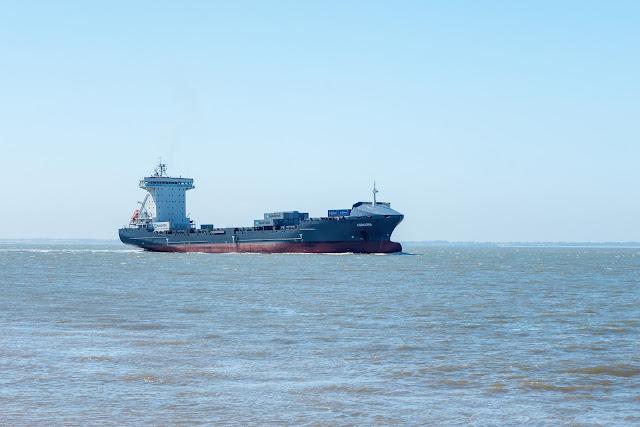Young kestrels and Ships at Landguard Point

The loan of Rosie` 150-600mm lens, gave me an opportunity to have a stroll to the church where Kestrels are nesting. They have nested here for a number of years and usually successfully raised young. This year being no exception. They have raised at least two, and possible three young this year and are at the stage where the youngsters are out of the nest and sitting on the roof, awaiting food from the parents, and giving their wings a bit of a testing. Sitting waiting for some food A short hop onto the top of the roof to test my wings. Later this morning we visited Landguard point for a walk. Covering approximately 33 hectares (81 acres) this shingle spit on the southern tip of Suffolk's stunning coastline offers a variety of flora and fauna. Unusual and rare plants, migrating birds, military history and huge ships arriving and departing at Britain's busiest container port. This was the container ship that I wanted to photograph - the MSC CLA...
